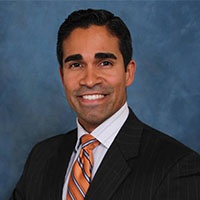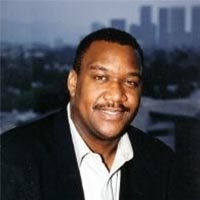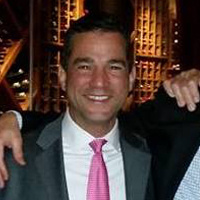 Poughquag DUI-DWI Lawyers, New York
Poughquag DUI-DWI Lawyers, New York
Sponsored Law Firm
-
 x
x

Click For More Info:
-
Keches Law Group
122 Dean Street Taunton, MA 02780» view mapSocial Security, Personal Injury, Workers Comp. Protecting Your Rights
Our team of experienced personal injury attorneys has over 130 years of combined experience representing individuals and families injured due to the negligence of others.
800-713-8650
Sponsored Lawyers
1-10 of 11 matches
Criminal, DUI-DWI, Felony, Misdemeanor, Traffic
Angel I. Falcon is a Dutchess County based general practice catering to the legal needs of individuals and businesses in the Hudson Valley and surrounding areas.
(more)Divorce & Family Law, Family Law, Child Support, Adoption, DUI-DWI
A caring and compassionate attorney: For two decades before I became an attorney I worked for some of the largest corporations and government agencies in the world. That meant I had a significant amount of real world experience and unlike many in our field, developed a kind personality along the way. As a senior communications executive I drove strategic communications and crisis management at IBM, JPMorgan, Siemens Healthcare, and Experian. Additionally, I spent six years in Washington, working as a press secretary for two of the most powerful members of the United States Congress. What changed: After a while, I just got tired of working for the nameless, faceless corporations and had enough of the partisan politics of Washington. I decided I wanted to help real people in crisis and focus efforts as a compassionate attorney. And here I am… The most important element in choosing a lawyer is finding the right connection. Divorces can take time. Trusting your attorney is key. Things move a lot smoother if we work well together. Let me be your compassionate attorney. And what better way to get to know me is learn my likes and dislikes. I am a family guy, who enjoys the simple pleasures. Having everyone around the table for dinner is worth a million bucks. I love music – all kinds of music. It is what I use to relax after a long day (with a glass of Scotch, of course). I love food – all kinds of food. My wife is a great cook. I enjoy volunteering in my community. Even though the practice of law keeps me very busy, I still find time to work on giving back. I am a member of the Cold Spring Lions Club, the Our Lady of Loretto Knights of Columbus, United Way of Dutchess County and the Northern Dutchess NAACP. Boy do I hate bullies. And in my line of work I see plenty. I don’t stand for bullies. They better bring their A-Game if they are going to deal with me. I will not stand for my client to be pushed around by their spouse or an opposing attorney. You will not be “nickel and dimed” either. My rates are fair and I will try and work with you. But don’t go crazy here…respect for my time and profession is still required. Prompt payment is much appreciated.
(more)Accident & Injury, Car Accident, DUI-DWI
Ted A. Novick’s practice is almost exclusively limited to medical malpractice and personal injury cases such as wrongful death, car accidents, construction site accidents, scaffold accidents, police brutality, civil rights, and premises liability. Mr. Novick works closely with a medical doctor on almost all lawsuits so that he can fully understand “the medicine” to maximize a client’s recovery. Mr. Novick is a 1989 graduate of the University of Bridgeport School of Law and initially was a law clerk for the Honorable Michael Hartmere of the Connecticut Superior Court. In 1990, Mr. Novick joined the Office of the Westchester County Attorney where he prosecuted over one hundred child abuse and child neglect cases. In 1992, Mr. Novick was promoted to the civil litigation bureau where he spent four years and successfully tried to verdict personal injury trials on behalf of the County. While at the County Attorney’s office Mr. Novick also handled numerous General Municipal Law matters and hearings. In addition while an Assistant County Attorney he worked closely with the County Police and Corrections officers in internal affair investigations. He was recently appointed General Counsel to the New York Police Chief’s Benevolent Association and the New York State Crimestoppers. After he left the County Attorney’s office in 1996, Mr. Novick worked for two Park Avenue litigation law firms from 1996 to 2000, gaining significant experience and recognition as an attorney proficient in handling complex matters in the areas of medical malpractice, personal injury, commercial litigation and criminal law. From 2000 to 2020 Mr. Novick managed the personal injury department of the prestigious boutique NY firm known as Gaines, Novick. Ted achieved huge verdicts and settlements in medical malpractice, sexual assault, motor vehicles, premises and construction accident cases. In 2020, Mr. Novick opened his own firm so that he would handle only the cases he selects. Currently, Mr. Novick handles and supervises all of his firms numerous personal injury and medical malpractice cases. During his career, Ted has handled cases for victims of negligence resulting in over 100 million dollars. Ted is also proficient in defense having represented a municipal hospital, a correctional medical facility and currently a motor vehicle carrier. Mr. Novick is licensed to practice in New York and Connecticut.
(more)


 Sean Flaherty Taunton, MA
Sean Flaherty Taunton, MA AboutKeches Law Group
AboutKeches Law Group Practice AreasExpertise
Practice AreasExpertise



